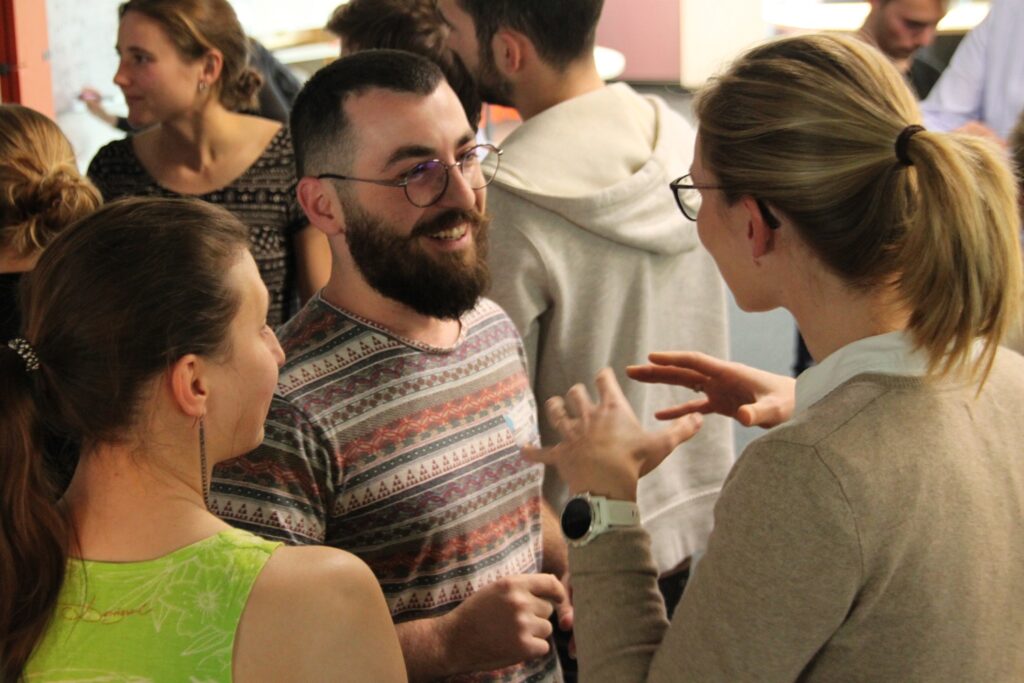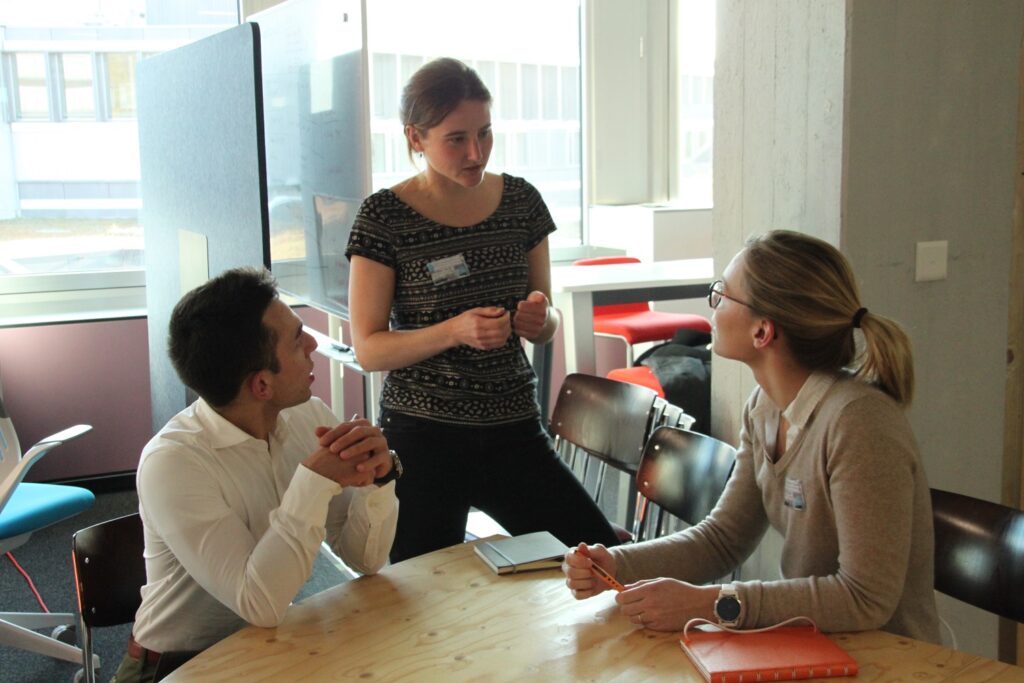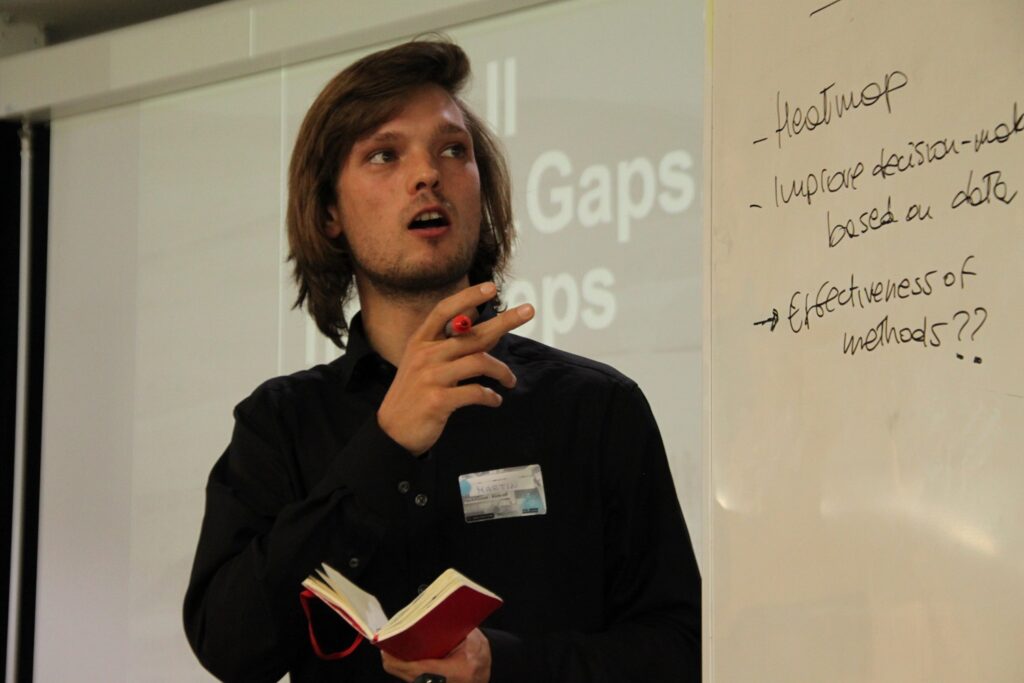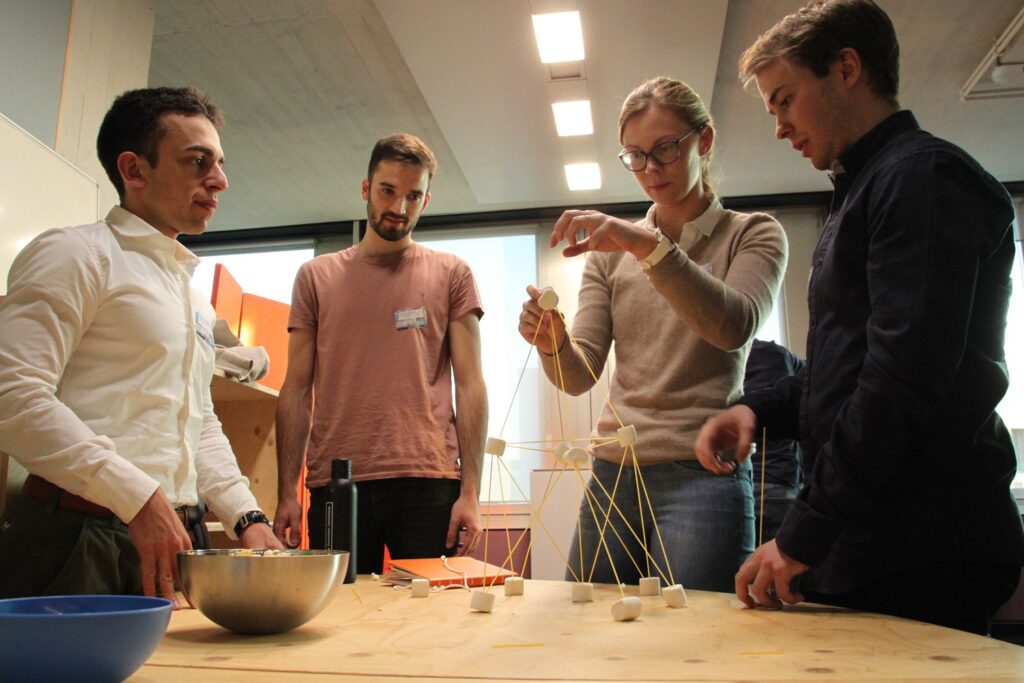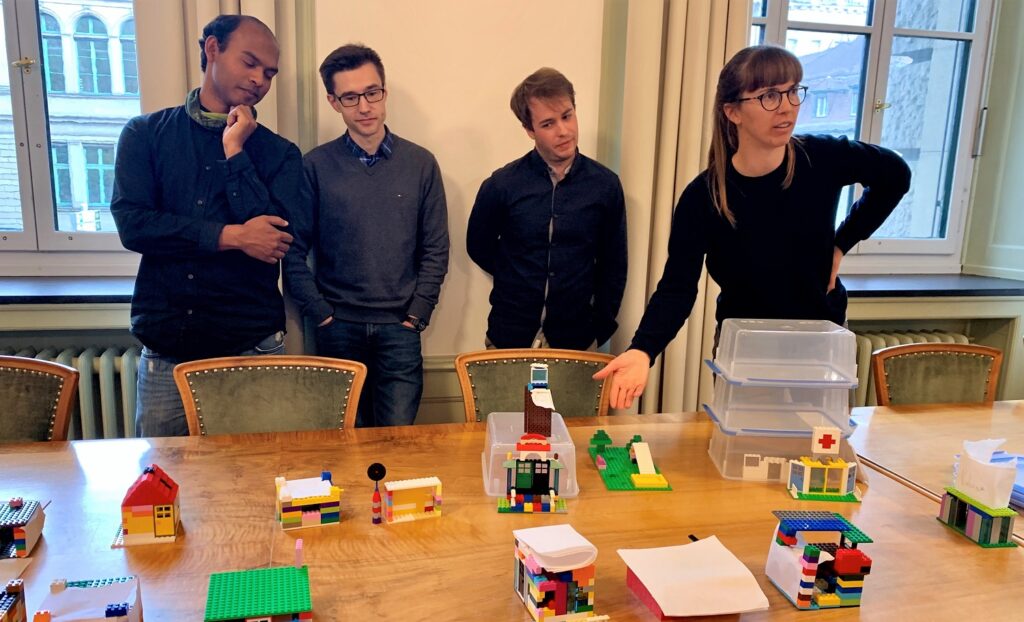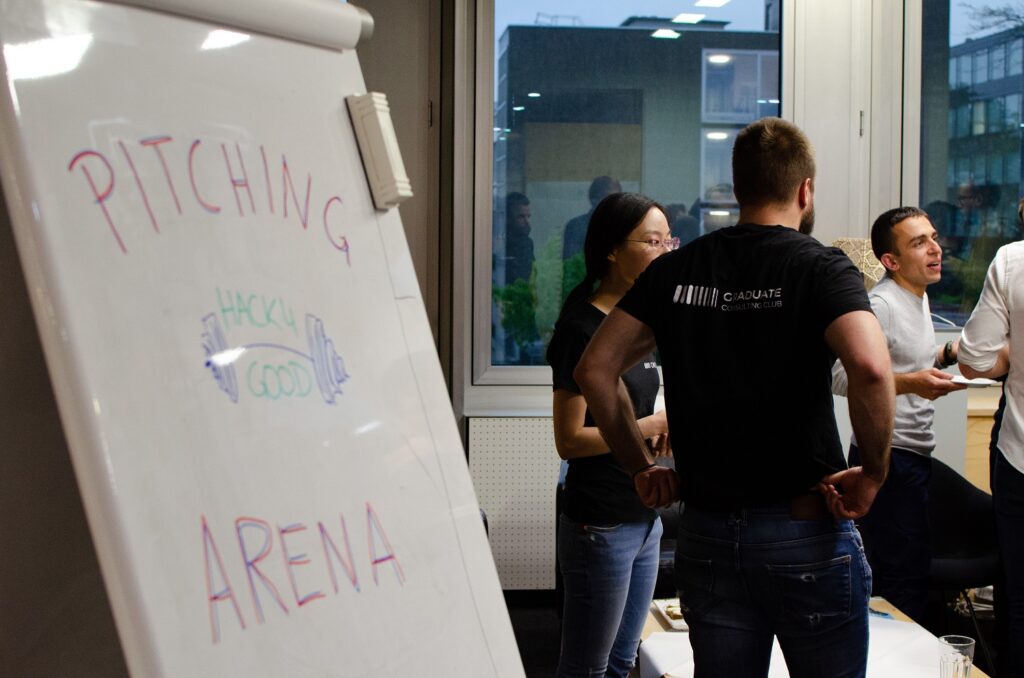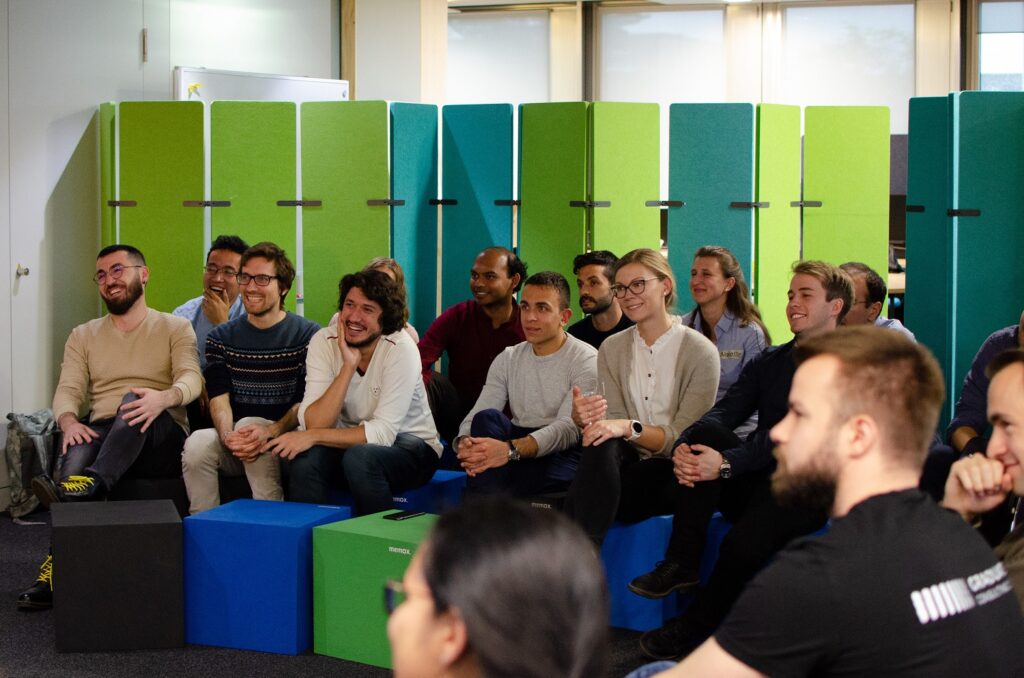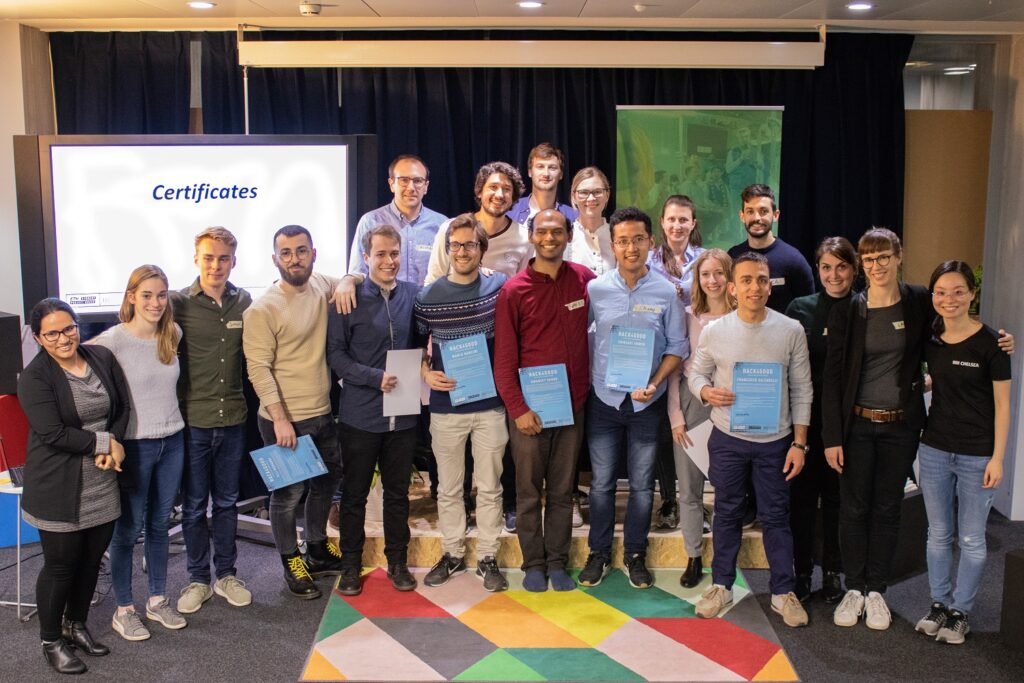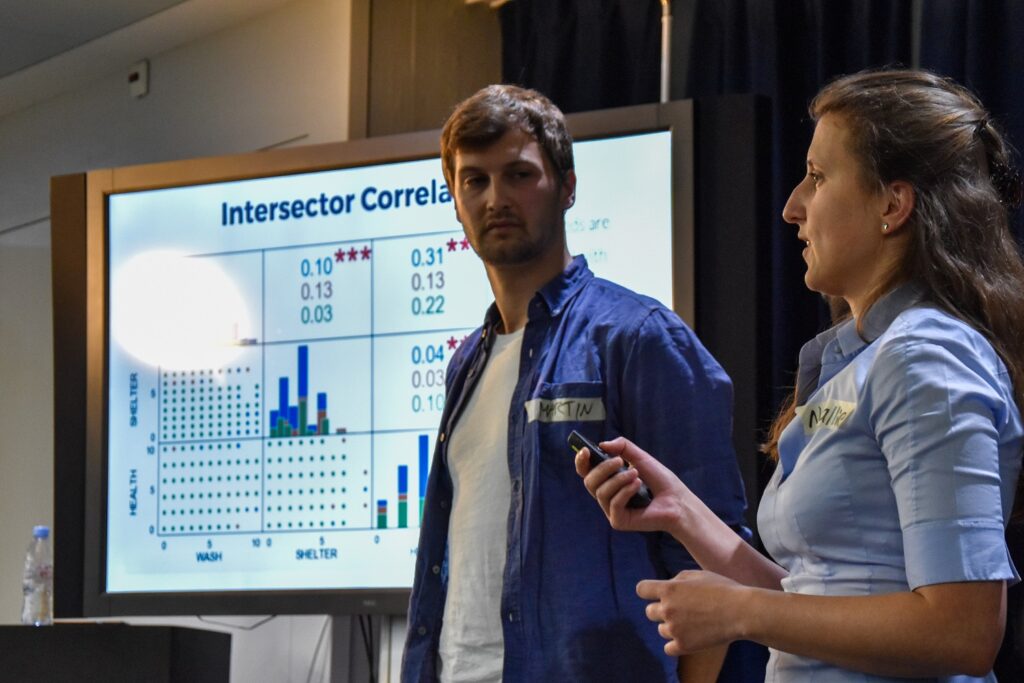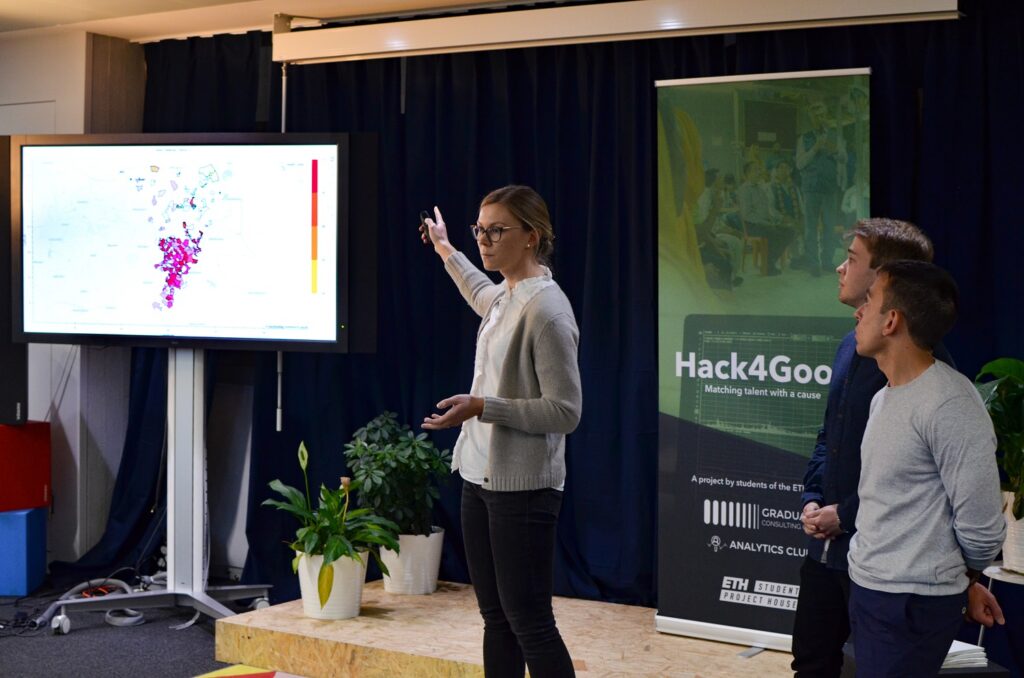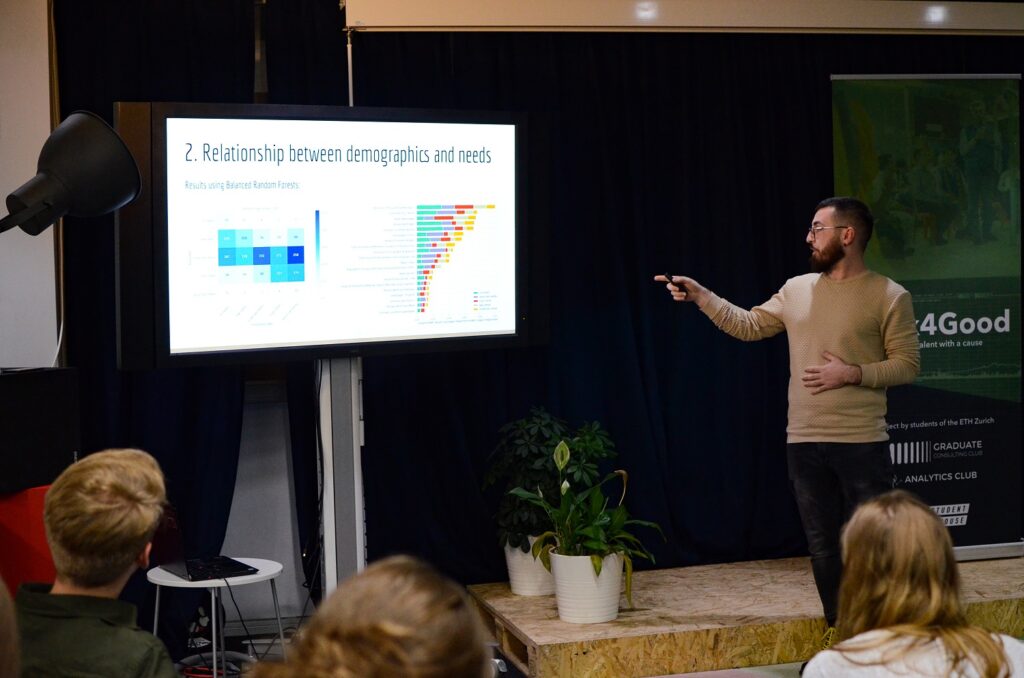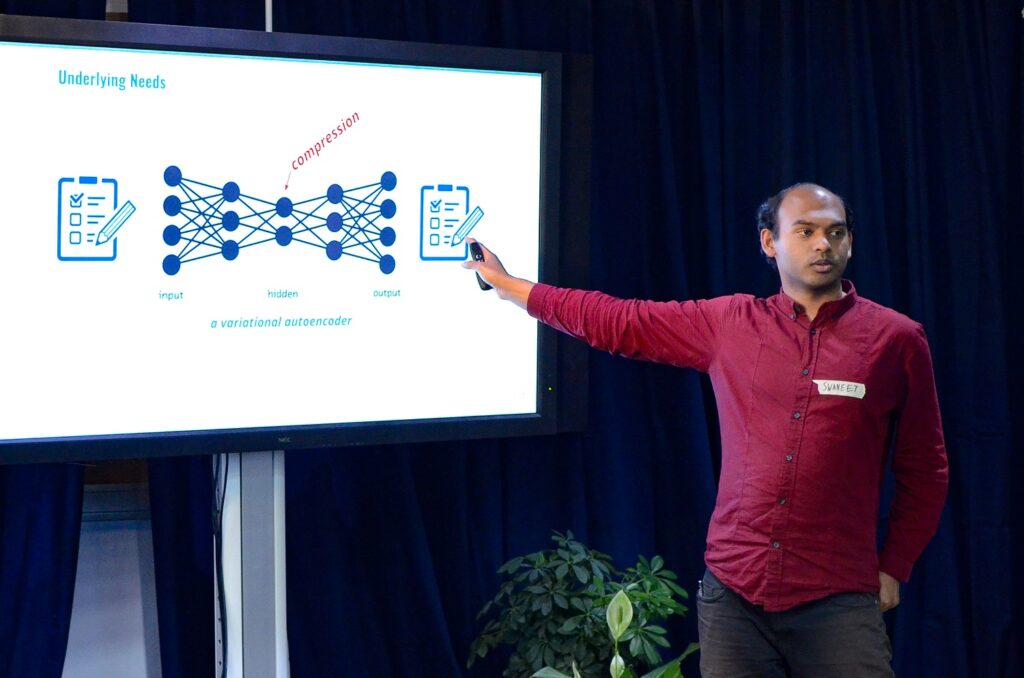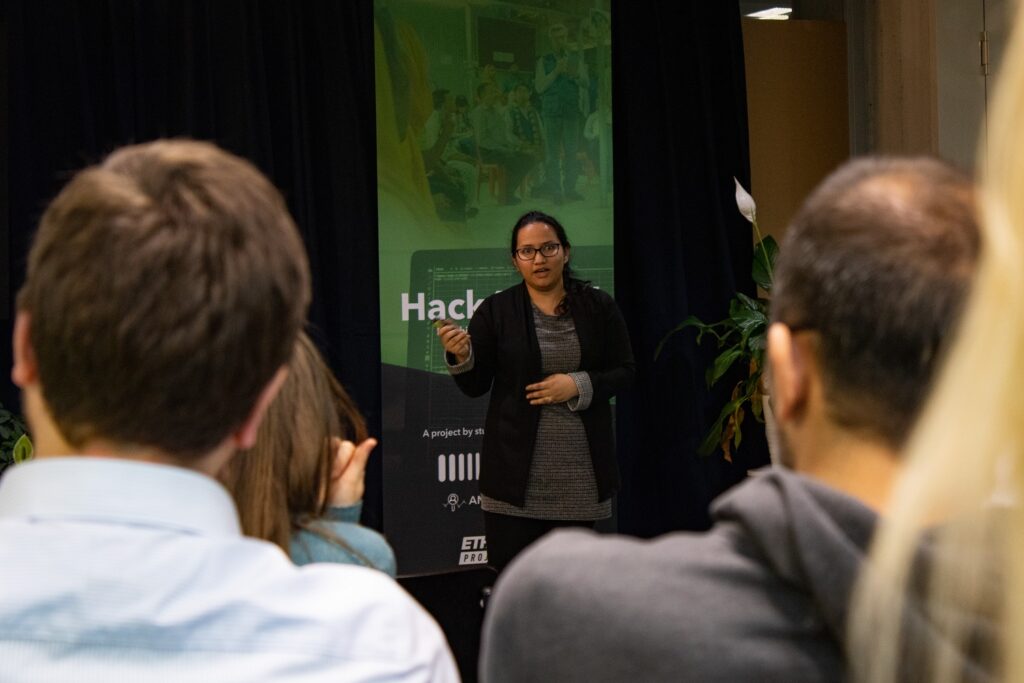It all started over a late-night cup of coffee during the winter break, when Laetitia Vionnet and I met to ponder about how our student clubs might cooperate to create a vibrant community around the topic of data science at ETH Zurich. Amidst cinnamon spice and Christmas cookies, we fantasized about the positive impact students could have, if only we could put the cutting-edge skills we learn here at the university toward some of humanity's most pressing challenges. I left the meeting with the midnight bus, excited about the idea of hosting a Hack-a-thon-style program. A program that would allow students to learn by working on practical and impactful data science problems. I never anticipated that our initial excitement would conspire with so many small coincidences to bring this dream to fruition.
Hack4Good
by Simon Mathis, Laetitia Vionnet & Barbara LaCara, 22.08.2019
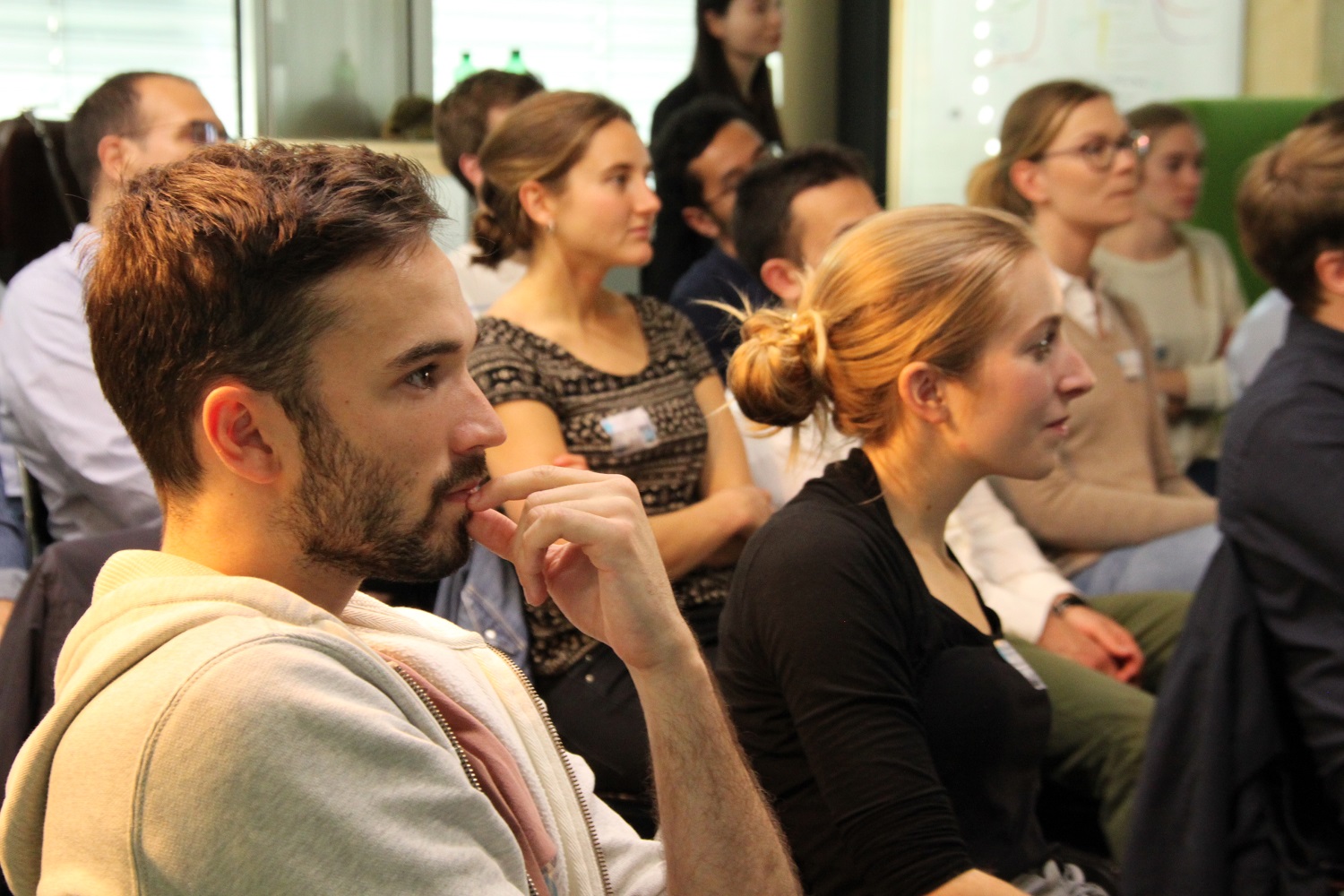
Participants at the Hack4Good Kick-Off (photo credits: Laetitia Vionnet)
What can ETH Zurich students do to help change our world for the better? Hack4Good co-founder Simon Mathis recalls his experience at the pilot edition of Hack4Good, a program that matches data science talents from ETH Zurich with non-governmental organizations (NGOs) to tackle some of the world’s most pressing issues.
Inspired by the initial idea, “Hack4Good” became a natural conversation piece in my social interactions. Funnily enough, one of the students with whom I talked about the idea remembered sharing a ride with a woman – Eliora Henzler - who worked as a data scientist at the NGO IMPACT Initiatives. IMPACT is essentially a `Data science squad` in the humanitarian sector. Via their reports they inform a third of the global humanitarian spending. The student shared Eliora’s email address with us, and soon after, IMPACT became the first NGO partner of Hack4Good. Another magical coincidence was our encounter with Barbara La Cara, who happened to be working on building up the Social Innovation Lab at the ETH Student Project House at that time. After hearing the initial idea, she directly joined our organizational committee to support us with her experience and some funding allocated to the Social Innovation Lab.
“Wonderful things happen when you combine skills and a good cause.”– Guest at final event
In mid-April, only four months after the initial coffee cup, the first Hack4Good kicked-off with an amazingly diverse group of 15 participants from 10 nationalities and 7 different departments within ETH Zurich. Our NGO partner IMPACT Initiatives presented us with the challenge of predicting the need-profiles (MSNA) of people in the ongoing humanitarian crisis in north-east Nigeria. This crisis affects over 7 million people and is one of the largest humanitarian crises today. The United Nations defines “need-categories” by, for example, “Wash,” “Education,” or “Shelter.” Accurate need-profiles within these categories help inform evidence-based humanitarian aid and support efficient disaster relief.
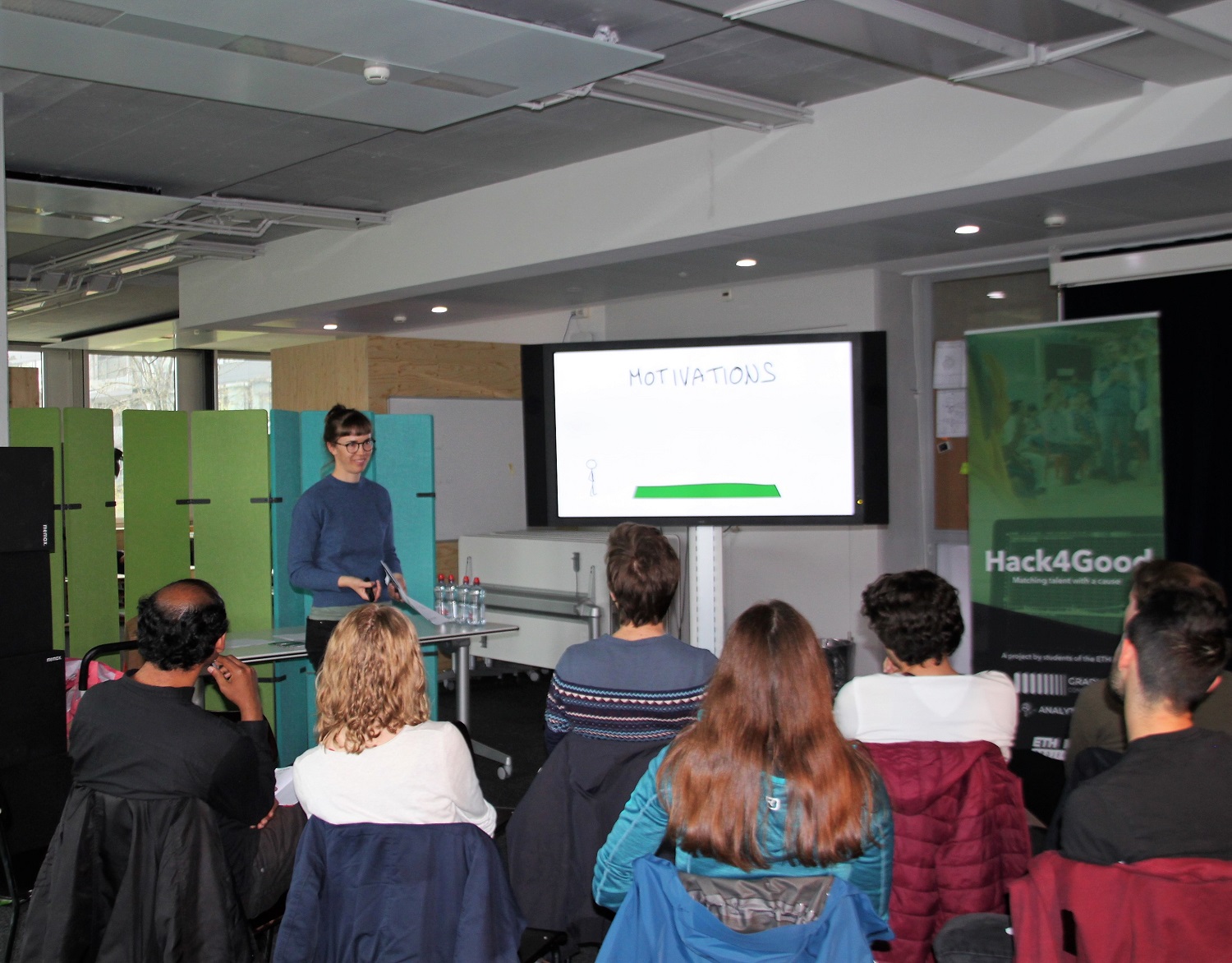
Hack4Good co-founder Laetitia Vionnet explains the art of giving feedback at the Hack4Good feedback workshop (photo credits: Simon Mathis)
Over the course of 5 weeks, our participants worked in their free time alongside their lectures to move their projects further along. In accordance with the two pillars of Hack4Good - learning and true impact - the students were supported in their work by an ecosystem of workshops, team-work sessions, and weekly office-hour calls with data scientists from IMPACT. In the first week, for example, we offered students a workshop on Agile Project Management with professionals, who donated their time in support of Hack4Good. In the workshop, we learned of the importance of iterative prototyping and using the office-hours in the program to check back with the “project holder” (in our case IMPACT) if the thought-of solution is actually valuable to them.
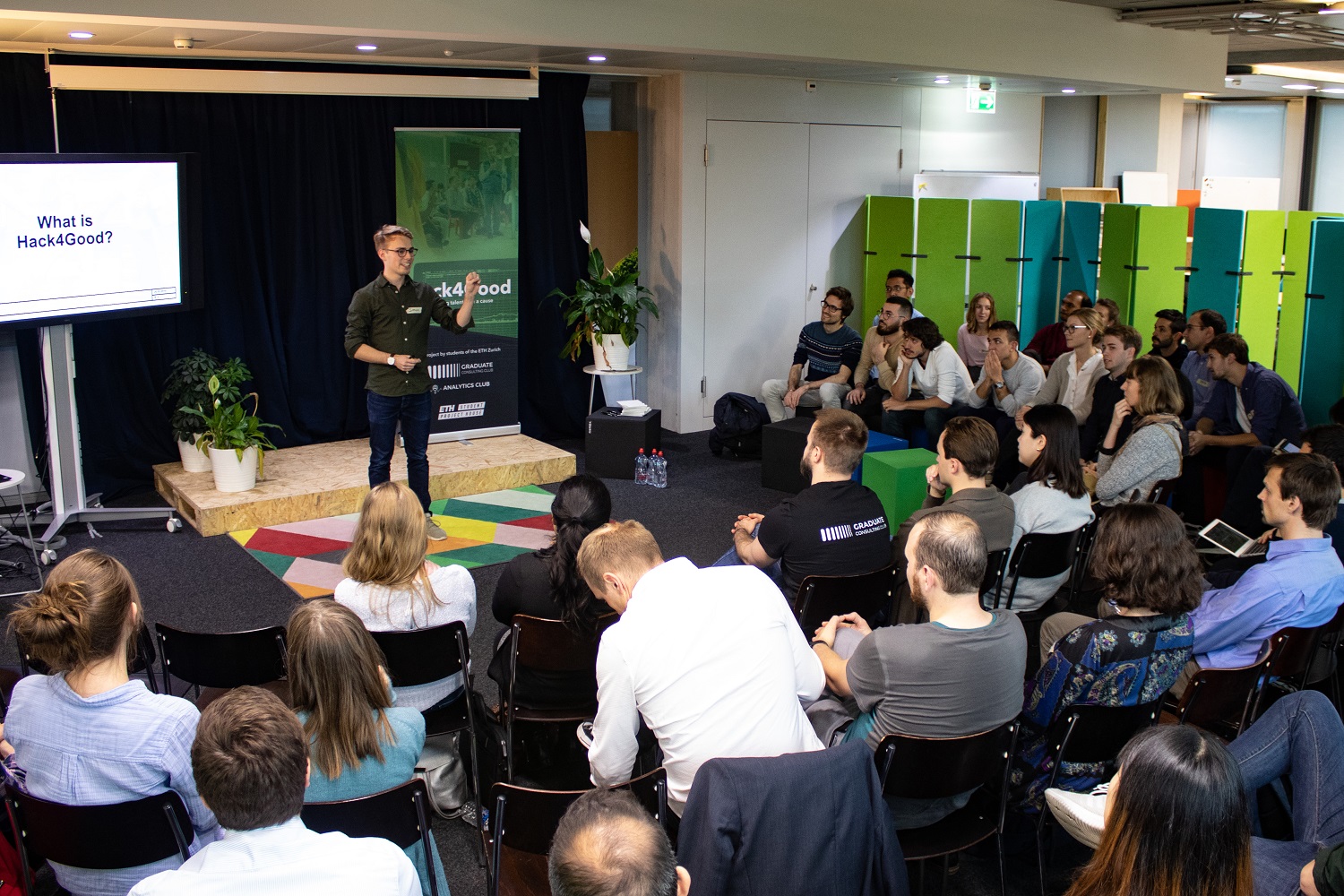
Simon Mathis welcoming the participants and guests for the Hack4Good final event in the ETH Student Project House (photo credits: Roberta Huang)
“How beautiful to see ideas become a reality through a combined commitment, skills, and a shared vision.”– Guest at final event
Finally, after weeks of intense teamwork, the day of the final presentation came. Next to our guests from the IMPACT Initiative Research Department, we had the honor to welcome over 60 guests, who were interested in seeing the solutions that students developed over just a few weeks.
As organizers, we were particularly curious to see how much our fellow students could achieve in this timeframe. The student teams’ pitches exceeded all my expectations. A personal highlight for me was how one participant transferred the wisdom of his Italian mother - “You have to clean your room if you want to find something” – to explain the importance of proper data cleaning. In their projects, the students came up with prototypes for interactive visualizations, a methodology to distill multiple needs to fewer, underlying core needs, and proposals for an algorithm to adaptively generate questionnaires for data collection.
This questionnaire-algorithm proposes questions that are based on the respondent’s answers to previous questions. In doing so, it in principle allows to speed up the data collection process by up to a factor of two. Had you asked me five months ago whether a simple idea conceived over a coffee could become a reality so quickly, I would not have imagined it would be possible. Thanks to the amazing support of ETH Zurich and IMPACT Initiatives, as well as the personal drive of all the people involved, I have been convinced otherwise. Maybe drinking coffee can indeed help humanity.
Access the reports and code on the findings of the student teams
Watch a video impression of the final event of the Hack4Good pilot
Learn more about IMPACT Initiatives
Learn more about multi-sectoral needs analysis (MSNA)
Learn more about the crisis in north eastern Nigeria
Learn more about the Agile approach to project management and software development
Learn more about data science at ETH Zurich
Autumn Edition Timeline for Hack4Good
The second edition of Hack4Good will take place in the autumn semester 2019.
· 1 September: Applications open
· 24 September: Applications close
· 2 October: The autumn edition of Hack4Good will kick-off in the ETH Student Project House
· 20 November: Final event
For more information and the sign-up check out www.analytics-club.org/hack4good
· 1 September: Applications open
· 24 September: Applications close
· 2 October: The autumn edition of Hack4Good will kick-off in the ETH Student Project House
· 20 November: Final event
For more information and the sign-up check out www.analytics-club.org/hack4good
Interested in participating?
Contact: simon.mathis@analytics-club.org
Interested NGO in hosting a project?
Contact: stephan.artmann@analytics-club.org
Interested in helping with organization or becoming a partner?
Contact: simon.mathis@analytics-club.org
About the authors

Simon Mathis is a Master’s degree seeking student in the Department of Physics at ETH Zurich. He is currently working on his thesis - a joint project between the group of Prof. Renato Renner and IBM Research in Zurich. Simon became interested in data science during his exchange in Tokyo and co-founded the Analytics Club at ETH.
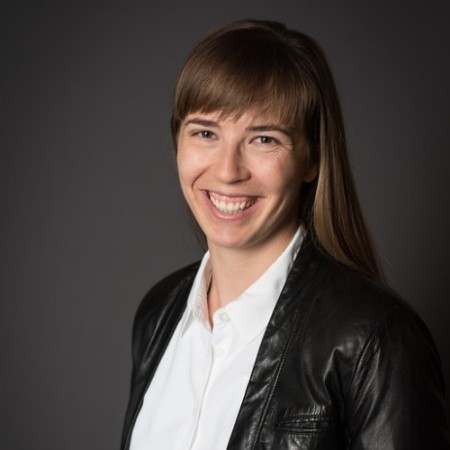
Laetitia Vionnet is a PhD candidate at the Institute for Biomedical Engineering at ETH Zurich and the University of Zurich. She holds a MSc in physics and a minor in Contemporary Asian Studies from EPFL. Apart from her studies, she has been initiating and working on projects that aimed at facilitating exchanges between Swiss institutions and external partners. Her interest in data science grew naturally at ETH. At the Graduate Consulting Club, she initiated a data science branch to reflect the evolution of the consulting industry.

Dr Barbara La Cara is the Lead of the Social Innovation Lab at the ETH Student Project House. She holds a PhD in Social Innovation and Business Ethics by ETH Zurich and has experience in mentoring early-stage social innovation teams. At ETH Zurich, she also leads the ETH Talent project, an initiative of the ETH Rector aiming to foster ETH graduates' employment and engagement in society.
About the organizers
Hack4Good is a joint program between the Analytics Club at ETH, the Graduate Consulting Club and the Social Innovation Lab of the ETH Student Project House.
Social Innovation lab at the Student Project House:
The Social Innovation Lab at the Student Project House offers students an opportunity to learn and experience how new products, processes or partnerships can tackle unsolved problems in society. You will get inspired with solutions toward climate change, deep poverty, inequalities, alienation, and many more. You will also have the opportunity to experience how to tackle specific societal problems on your own (or within a team).
Graduate Consulting Club:
The Graduate Consulting Club (GCC) is a student-led organization of ETH Zurich and University of Basel that aims to enable students to successfully transition from graduate schools to professional career in management consulting, which nowadays goes beyond economics and encompasses data science.
Analytics Club at ETH:
The Analytics Club is a student organization for data science enthusiasts at ETH Zurich. Our goal is to build a community to exchange knowledge, link talent with industry and to practice on hands-on real-world problems.


